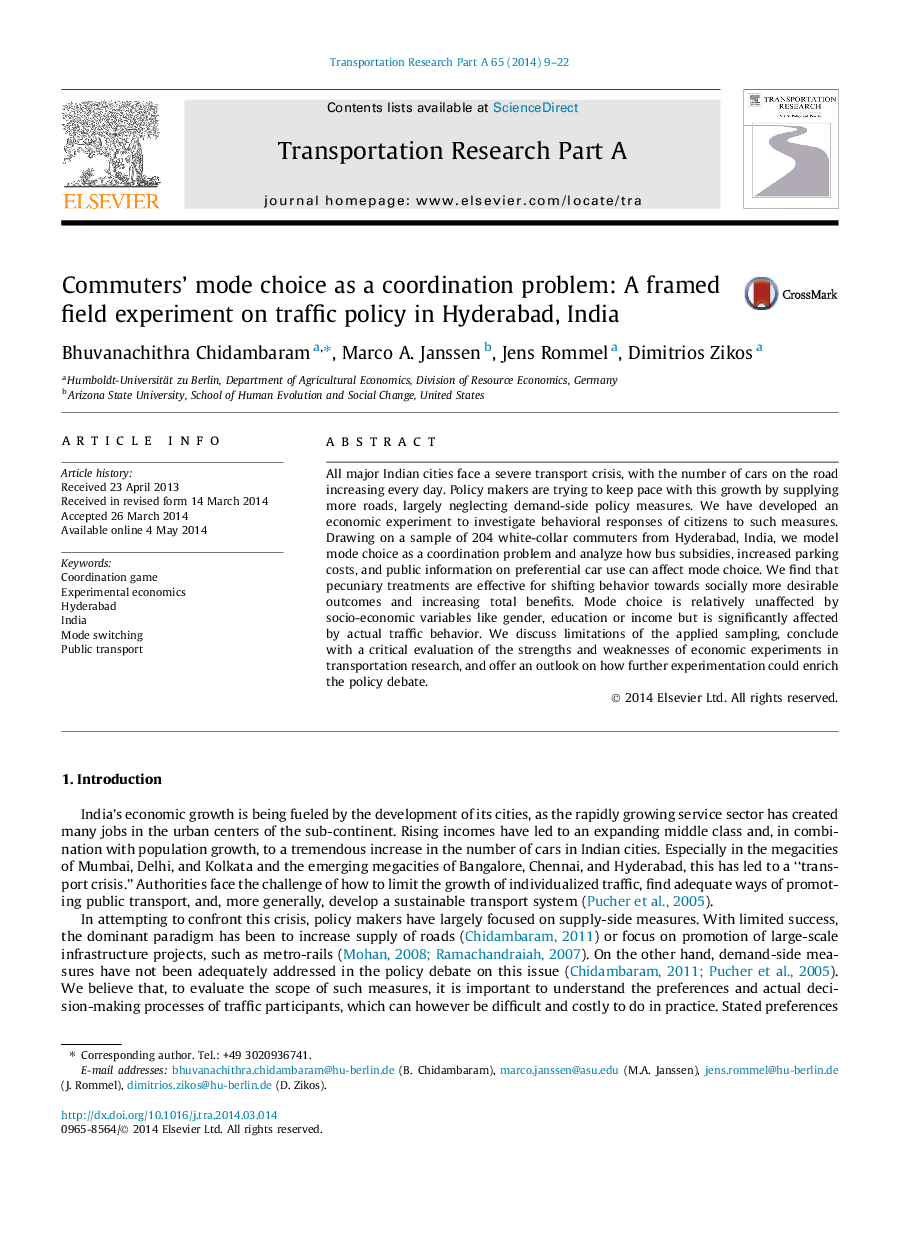| Article ID | Journal | Published Year | Pages | File Type |
|---|---|---|---|---|
| 311217 | Transportation Research Part A: Policy and Practice | 2014 | 14 Pages |
•Experimental economics provides an adequate toolkit to study mode choice dynamics.•Mode choice is modeled as a coordination problem with interdependent travelers.•Pecuniary measures reduce car use more than non-pecuniary measures in a game setting.•Parking costs are more efficient than bus subsidies in the game.•Experiments yield valuable insights into traffic behavior under different policies.
All major Indian cities face a severe transport crisis, with the number of cars on the road increasing every day. Policy makers are trying to keep pace with this growth by supplying more roads, largely neglecting demand-side policy measures. We have developed an economic experiment to investigate behavioral responses of citizens to such measures. Drawing on a sample of 204 white-collar commuters from Hyderabad, India, we model mode choice as a coordination problem and analyze how bus subsidies, increased parking costs, and public information on preferential car use can affect mode choice. We find that pecuniary treatments are effective for shifting behavior towards socially more desirable outcomes and increasing total benefits. Mode choice is relatively unaffected by socio-economic variables like gender, education or income but is significantly affected by actual traffic behavior. We discuss limitations of the applied sampling, conclude with a critical evaluation of the strengths and weaknesses of economic experiments in transportation research, and offer an outlook on how further experimentation could enrich the policy debate.
